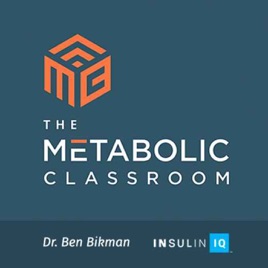
Advertise on podcast: Beat Your Genes Podcast
Rating
4.5 from
Country
This podcast has
341 episodes
Language
Publisher
Explicit
No
Date created
2016/07/25
Average duration
64 min.
Release period
16 days
Description
Let's look at life through the lens of our ancestors. Our instincts were shaped by their struggles in an environment much different than our current environment. Our instincts haven't changed much but our environment has changed dramatically. We blend the science of evolutionary psychology with the clinical experience of Doug Lisle, PhD to explore common problems and stumbling points in our pursuit of happiness. New episodes come out Wednesdays at 8:30 PST. If you have a question or comment, or maybe even a complicated situation that you'd like some advice on, feel free to call us and leave a voicemail at (714) 900-2601 or send in a question through www.BeatYourGenes.org
Social media
Check Beat Your Genes Podcast social media presence
Podcast episodes
Check latest episodes from Beat Your Genes Podcast podcast
E326: Priest broke confession seal and told husband I cheated
2024/02/22
Evolutionary psychologist, Doug Lisle, PhD & social scientist, Jen Howk, PhD discuss the following situation with host, Nathan Gershfeld:
I cheated on my husband three years ago while traveling for work. It was a one-night stand and we didn't exchange numbers or keep in contact. I don't even know his last name. Until last month, I've never told anyone about this event. At the time I cheated, I didn't really care because my marriage was rocky and I felt unappreciated. But my huusband and I reconnected during quarantine and I started to feel extremely guilty. Last month, I thought I would try going to confession with my parish priest. He said I need to tell my husband as part of my penance. I wasn't really sure how to do that, so I've sat on it. Last weekend, I came home to my husband throwing all of my stuff out of the bedroom and trying to kick me out of the hoouse. He knows everything. Apparently, the priest followed up to see if I'd told my husband, and when my husband said he didn't understand what the priest was talking about, he told my husband about the affair. My whole world is exploding because I thought confession was supposed to be private. Does the priest have any kind of liability or responsibility? What can I do?
Copyright Beat Your Genes Podcast
Watch this episode on Youtube! @BeatYourGenes
Host: Nathan Gershfeld
Interviewee: Doug Lisle, Ph.D. and Jen Howk, Ph.D.
Podcast website: http://www.BeatYourGenes.org
True to Life seminars with Dr. Lisle and Dr. Howk : http://www.TrueToLife.us
Intro & outro song: City of Happy Ones · Ferenc Hegedus
more
325: Prove-'em-wrong Motivation, Managing child's outbursts, Aunt is very disagreeable
2024/02/08
Evolutionary psychologist, Doug Lisle, PhD and social scientist, Jen Howk, PhD discuss listener questions with host, Nathan Gershfeld:
1. Help! My son just turned 8. He has acquired part of his personality from my mother- he can be loud and will overreact or get really angry about things. This includes being told he needs to stop an activity because we are leaving the house, etc. I am trying to help him manage these outbursts because kids are starting to make fun of him at school for them. Do you have any specific strategies that would help or should I focus more on his diet and sleep? He is normally a sweet boy and these outbursts have improved with age but I feel he needs more support.
2. Is there anything that is the opposite of the ego trap when you have been repeatedly told negative things like that you are worthless and will never amount to anything? If the ego trap is demotivating, is hearing the opposite motivating? If so, can't it also be extremely demotivating as well, especially if your mind is doing a CB analysis of the possibility of success and whether the energy output is worth it, but the people around you are saying that you won't succeed?
3. I have an aunt who is so solipsistic, doesn't enquire about anyone else and is disagreeable. Sitting across the table from her, it's difficult to understand how someone can be so blind to the life of others and narcissistic. She's was divorced by 2 prior husbands. Is disagreeable behavior like this related to the "theory of mind" module and if so can you describe the various demarks on the "theory of mind" bell curve?
Follow us:
YT: @beatyourgenes
X: @beatyourgenes
Insta:
@Beatyourgenespodcast
Web: www.beatyourgenes.org
Doug Lisle, PhD www.esteemdynamics.com
Jen Howk, PhD www.jenhowk.com
Nathan Gershfeld, DC www.fastingescape.com
Intro & outro song: City of Happy Ones • Ferenc Hegedus Licensed for use
more
324: Is Attachment Theory WRONG? Do parents owe you support?
2024/01/25
Evolutionary psychologist, Doug Lisle, PhD discusses the following listener questions with host, Nathan Gershfeld:
1. I'm trying to decide whether to go back to work a year after my second child, or to stay home with her till preschool. I have heard you say on your podcast 'it doesn't matter who raises your kids' which I understand to be a reference to twin studies that show that parents have very little influence on how their children turn out (outcomes are about 80% genetic). How do you square this with attachment theory, and psychologists who say that children need one primary caregiver for the first three years or they will be beset with anxiety and depression in their teen years. I am thinking of the book 'being there' by Erica Komisar in which she advocates very strongly for being a stay at home mother for the mental health of your children. I would like to have a third child, but being out of the workplace for 6 years would dent our finances and possibly my self esteem.
2. Dear doctors, I grew up in a Christian home but stopped going to church once I left home. All of my immediate family are still very religious and my parents financially support someone who was my best friend in high school, who has become a missionary. I find that dynamic very unfair and recently told both parties that I feel boundaries have been crossed. My friend asked my parents to stop supporting her but they refused. I feel betrayed by my parents. How do you advise I deal with the relationship moving forward? I’ve already ended my friendship but wish I could be emotionally closer to my parents.
Watch this episode on Youtube! @BeatYourGenes
Host: Nathan Gershfeld
Interviewee: Doug Lisle, Ph.D.
Podcast website: http://www.BeatYourGenes.org
True to Life seminars with Dr. Lisle and Dr. Howk : http://www.TrueToLife.us
Intro & outro song: City of Happy Ones · Ferenc Hegedus. Licensed for use.
Copyright Beat Your Genes Podcast
more
323: Can everyone be happy? Does online dating change the cost-benefit?
2024/01/11
Evolutionary psychologist, Doug Lisle, PhD and social scientist, Jen Howk, PhD discuss the following listener questions:
1. Can all personality types be equally happy if they apply diligent effort to worthwhile goals? ie all other things being equal, would a low conscientiousness individual be as happy as a high conscientiousness individual if they both applied their version of diligent effort and equally felt they hadn't left 'anything on the table' (despite those levels of effort and results being very different)
2. You have previously characterized men as "pair bonders or not." How has on-line dating changed the CB here for both sexes?
3. I am 51, happily married for 2 decades and have 1 child. We recently had a huge fight regarding whether we have a responsibility to help others. We have a friend who had a messy, complicated divorce and is struggling financially while still fighting her ex in court over child custody and business matters. He is a lying, unpredictable scam artist . As much as I feel sorry for our friend, I would like to keep a distance from this situation. Last time we saw her my husband offered to pay for a lawyer, and an accountant. While we live comfortably, we do not have the money this woman would need to become unentangled. When we got home I started yelling that my husband should not have made this offer because we really cannot afford it and I don't want her criminal ex husband knowing that we are helping her. While my cavewoman instinct was to protect my financial stability, I found it more effective to (over)emphasize the physical threat this could have on me since my husband travels a lot and her ex knows where we live. The fight escalated as my husband accused me of being selfish, uncharitable, and unwilling to help. I said that my time and energy go into taking care of my home and our family. We have already given this friend money and our time over the years. From an Evo-psych point of view, I understand that I feel a threat to my resources (financially and emotionally) as well as safety. My husband does not see this situation at all like I do. Shouldn't a cave-man have the instinct to primarily care for his family (only) and not spread their resources to another man's family?? Sidenote: while my son likes her kids, I would like to avoid any possible bad influence as one is already dabbling with marijuana. So, threat to offspring is another concern... Please offer any insight you have.
Copyright Beat Your Genes Podcast
Host: Nathan Gershfeld
Interviewee: Doug Lisle, Ph.D. and Jen Howk, Ph.D.
Podcast website: www.BeatYourGenes.org
Watch this episode on Youtube! @BeatYourGenes
True to Life seminars with Dr. Lisle and Dr. Howk : www.TrueToLife.us
Intro & outro song: City of Happy Ones · Ferenc Hegedus
more
Love him when he's here, but hate him when he's away, Solving social anxiety? Are SJW's really more noble?
2023/12/14
Evolutionary psychologist, Doug Lisle, PhD and social scientist, Jen Howk, PhD discuss the following listener questions:
1. I have a friend who is very active in fighting for workers' rights. In fact he has a high level job in one of my country's major trade unions. He often organises protests, and is always the first person on the frontline with the megaphone. On a personal level, he is quite overweight, and I know for a fact does not help out much at home with housework and childcare. I used to think that social activists and social justice warriors were high conscientious types. But now I'm wondering if it is actually a mixture of disagreeableness and extraversion. Are people like Rosa Parks and Greta Thunberg, who we hold up as icons, conscientious or disagreeable, or a mixture of both?
2. I am a woman in my 30s and I struggle with severe social anxiety and it seems like no matter what I do I can't get better. I'm terrified of wasting any more of my life due to my fears and avoidance behaviors. It's even difficult for me to hold down a job long term because of how hard it is for me to perform in front of others all day. My love life is nonexistent and I don't know how to make friends. What is social anxiety exactly? Is it that I've been stuck in the ego trap for years because I fear status loss? How can I overcome this? I tell myself I have no status to lose but it doesn't help. I get so anxious at times I even dissociate. Counselors just tell me to push through it. Doctors just try to put me on medications. I am tired of being crippled with fear every day and watching my days pass me by. I know the life I want isn't going to come to me while I'm hiding at home. I want to have a life that is meaningful to me but I don't know what to do.
3. I've been with my husband for 5 years. When I am with him I feel so in love, we have lots of good sex, we talk about the future. To me, he's gorgeous. He can't believe how much I enjoy his natural scent. But something happens when he isn't around. I start doubting everything about our relationship, thinking it's going nowhere, that I married the wrong person. Some of my thoughts are we're broke, he's 15 years older than me, I settled down too soon. It feels like I hate him and that he robbed me of my future. Why is this happening? I can't understand how I can feel so in love and then feel so ambivalent.
Copyright Beat Your Genes Podcast
Host: Nathan Gershfeld
Interviewee: Doug Lisle, Ph.D. and Jen Howk, Ph.D.
Podcast website: www.BeatYourGenes.org
True to Life seminars with Dr. Lisle and Dr. Howk : www.TrueToLife.us
Intro & outro song: City of Happy Ones · Ferenc Hegedus
more
321: Processed stimulation - How social media competes for our attention
2023/11/30
Evolutionary psychologist, Doug Lisle, PhD and social scientist, Jen Howk, PhD discuss the following listener question:
Why do people love formulaic media and entertainment? Most of the pop music that dominates the charts is nearly identical. It uses the same four chords in the same progression with similar melodies and lyrical themes. Most of the blockbuster films that gross massive amounts of money tell variations on the same story with similar effects, music, and actors. This seems even more pronounced in the era when massive franchises like Marvel and Star Wars reboot and re-hash the same stories/characters over and over… and over. Even content on TikTok or instagram tends to be made from a formula— the influencers tend to look the same, use the same music, and say/do the same things. Whether in music, film, TV, or social media, we seem to be stuck in a rut where very little “original” art rises to the surface. I know there is a pleasure trap aspect to this, but I am curious why the majority of our human brains find this type of content so appealing to begin with. Why do we seem to get so much enjoyment from reliving the same experiences? Why do we find these particular types of media so fascinating?
Copyright Beat Your Genes Podcast
Host: Nathan Gershfeld
Interviewee: Doug Lisle, Ph.D. and Jen Howk, Ph.D.
Podcast website: www.BeatYourGenes.org
True to Life seminars with Dr. Lisle and Dr. Howk : www.TrueToLife.us
Intro & outro song: City of Happy Ones · Ferenc Hegedus
more
320: Diet considerations, Disease-reversal, Losing weight, Metabolism Dynamics, Cram circuit
2023/11/16
Evolutionary psychologist, Doug Lisle, PhD, social scientist, Jen Howk, PhD, and Nathan Gershfeld, DC discuss the following listener questions:
I am curious about the work of David Sinclair from Harvard about his anti-aging research. He makes some pretty fantastic claims. He does, for example, advocate for a plant-based diet, but then talks quite a bit about supplements, including prescription drugs like Metformin. I also heard him say that although plant-based diets are good, we must avoid foods that spike blood sugars - like rice and grapes. Aren't those whole foods? Grapes, really? What do they think of Dr. Sinclair's work...work considering or majoring in minor things? I’m on the highest end of a healthy weight range even on a whole natural foods diet composed of fruits vegetables whole grains and legumes, with at most 1 avocado per week and 1 tsp of flaxseed per day. No nuts or seeds. I’ve lost weight before by restricting and over exercising, but I couldn’t maintain it. However I felt much more confident at this lower weight (about 10-15 lbs thinner than I am now). As women there’s a lot of pressure to be thin. How do I get over my desire to be thin? Is this something I can ever get over? I think about it every day and am tired of thinking about this. Is the thicker persons' metabolism or spontaneous recovery different from the genetically skinny person? i.e. if your genetics figured out your survival success by having you eat more, weigh more and get more resources, won't your body be genetically predisposed to continue those successful survival instincts that helped in your survival before? I’m having difficulty distinguishing the difference between eating intermediately to grit myself through the extinction curve of a condition cram circuit and eating under the hunger drive. How do I know if I’m eating intermediately or eating under the hunger drive when I got through this process ? Is there like a rule of thumb you would suggest we follow e.g 1 plate of food then nothing for a couple of hours??
Copyright Beat Your Genes Podcast
Host: Nathan Gershfeld, DC
Interviewee: Doug Lisle, Ph.D. and Jen Howk, Ph.D.
Podcast website: www.BeatYourGenes.org
True to Life seminars with Dr. Lisle and Dr. Howk : www.TrueToLife.us
Fasting Supervision: www.FastingEscape.com
Intro & outro song: City of Happy Ones · Ferenc Hegedus
more
319: Free will vs. decision making, Best political system aligned with human nature
2023/11/02
Evolutionary psychologist, Doug Lisle, PhD and social scientist, Jen Howk, PhD discuss the following listener questions:
1. If I am understanding what you have said in the past about decision making and free will, the main thing that changes/influences our behavior is new information. So, we really don't have "free will" in our decision making like we think? If this is true, does it mean that -- if we want to have more control or positive results in our decision making -- rather than "trying harder" or "thinking more clearly" we should fastidiously study the situation and accumulate the most information possible. Then we kind of sit back and see what our computer-brain-cost/benefit/analyzer ultimately decides -- even though we like to think WE are making the decision? Maybe I have this wrong. Can you elaborate?
2. I love learning about evolutionary psychology because everything makes so much sense. However, this knowledge often makes me sad because I now realize how many things I can't change, specifically I can't make my disagreeable husband nicer. Do the doctors ever feel this way? Any tips for not feeling defeated?
3. Generally advice givers tend to give big picture advice. However, from listening to the doctors I see much more attention paid to the little minute to minute and hour to hour processes of any meaningful goal. For example, the whole concept of running experiments is to change conditions at the granular level to see if they result in a meaningful difference in affect that supports the general direction someone wants to move in. Why is it that people tend to ignore the small details of change? Is it because they are not very interesting I.e they don’t really sell books?
4. Which political system is best aligned with human nature? And if we could click our fingers and make it happen, what would that look like in reality?
Copyright Beat Your Genes Podcast
Host: Nathan Gershfeld
Interviewee: Doug Lisle, Ph.D. and Jen Howk, Ph.D.
Podcast website: www.BeatYourGenes.org
True to Life seminars with Dr. Lisle and Dr. Howk : www.TrueToLife.us
Intro & outro song: City of Happy Ones · Ferenc Hegedus
more
318: Jen Howk on Buddhism, Philosophy, The Matrix, Simulations, and Sentience
2023/10/19
Social scientist, Jen Howk, PhD discuss the following topics:
I loved your last podcast about Buddhism and other perspectives in psychology. I'd love to hear more of your perspectives on spirituality such as how you would describe the personality profiles of popular gurus Byron Katie and Eckhart Tolle. They both claim to have been in close to catatonic states of misery/depression, suicidal and then overnight, woke up enlightened. If it's not enlightenment, what are they experiencing? I'd also like to hear your views on other personality profiles such as influencers who end up being con artist and other weird, modern day criminals. Can all personality types be equally happy if they apply diligent effort to worthwhile goals? ie all other things being equal, would a low conscientiousness individual be as happy as a high conscientiousness individual if they both applied their version of diligent effort and equally felt they hadn't left 'anything on the table' (despite those levels of effort and results being very different) I am curious how you would define a “sentient” organism. Does sentience even exist? If we are simply a system of electrical signals that indicates our next action based on a pre-programmed reward/punishment function, then are we truly more “sentient” than the AI personalities currently being built by OpenAI and Google, etc? How and where do we draw the line between an organism or machine that is sentient and one that is not? Do you think this should any implications for the construction and ownership of AI personalities and computer-based neural networks?
Copyright Beat Your Genes Podcast
Host: Nathan Gershfeld
Interviewee: Jen Howk, Ph.D.
Podcast website: www.BeatYourGenes.org
True to Life seminars with Dr. Lisle and Dr. Howk : www.TrueToLife.us
Intro & outro song: City of Happy Ones · Ferenc Hegedus
more
317: When Nobody Else Gets It! Could my Cost-benefit calculator be faulty? Do men love their children like moms do?
2023/10/05
Evolutionary psychologist, Doug Lisle, PhD discusses the following listener questions:
1. I have read "Blueprint" many times and am still learning so much from that book. It is obvious to me how much of who we are and what we do is heritable. So, what do you do when no one else gets that? Or knows that? Recently I was having coffee with good friends and they were discussing a mother of one of them who is a serious hoarder. The conversation went on forever while they tried to decide why she is like that...bad childhood, loves collecting stuff, mean husband, etc. Finally, I suggested "genetics" and they all stopped, looked at me in horror, and went right back into all their own opinions. Finally, to avoid getting frustrated with everyone, I had to leave. This kind of thing happens all the time as people talk openly about their kids, husbands, friends, etc. I feel like I can't have an interesting or intelligent conversation with anyone, anymore.
2. I believe that a lot of my problems stem from the fact that my cost-benefit mechanism is faulty! I can never decide on a course of action and tend to miss out on things because I can't come to a decision as to which option is best. I've jumped from job to job throughout my life, I'm now 50, but have never achieved anything career wise due to indecision and the feeling the grass is always greener on the other side. This spills over into every aspect of life as I'm constantly comparing myself to others and their achievements and feel I'm a failure in comparison. Is it too late to do something about my over analysing of everything and is there a way to make my internal machinery stop going around in circles and finally reach some sort of a conclusion? Thanks very much from someone who thought they'd never make sense of humanity until discovering evolutionary psychology!
3. How do you find the balance between “trying” (gritting through something), or alternatively focusing on changing an environmental variable or circumstance. Based on carefully listening to the Drs discussing motivational dilemmas and procrastination it all comes down to a C/B analysis (most of which in unconscious). Therefore what rule of thumb or questions do you ask yourself to know when it is a good idea to potentially grit something out so you can “go up a learning” curve or instead focus your energy on changing something in the environment? To put this into context, I find my job boring… really boring… I can barely focus on the subject matter without my brain wondering, I can also see that if I focused for a few weeks or so and was diligent I would do better and start receiving positive feedback which could change how I feel i.e chane the C/B. So what’s the procedure here? How can I tell if I should be gritting it out or changing some variable in my environment.
4. Do men only love their children for as long as they love their mother? I’m a divorced single mom with two small children. I live in Florida while my ex lives in Colorado and he never comes to visit his children and rarely even calls them. He seemed like a loving father when we were together. When our marriage was falling apart, he seemed to care less about the children. Even though he says he loves them, his actions don’t show it. I have sacrificed so much for these children and love them more than I love my own life, while he’s happy just paying child support and sitting on the sidelines while I do all the work. I’m not complaining at all, I actually prefer it this way, I’m just baffled at how men who claim to love their children can spend years without seeing them. I have many divorced friends in this same situation. It seems to me that men only love their children for as long as they love the mother. Is this true? Is a man’s love for his children dependent upon how much he loves the mother? Even King Henry VIII was an example of this.
Copyright Beat Your Genes Podcast
Host: Nathan Gershfeld
more
Buddhism & Evolutionary Psychology, Is Evo Psych only controversial to other Psychologists? Corporal punishment
2023/09/21
Evolutionary psychologist, Doug Lisle, PhD and social scientist, Jen Howk, PhD discuss the following listener questions:
Do the realizations of Buddhism hold any credibility through an evolutionary psychological lens? Does suffering really come from unfulfilled desires? Why would we evolve to have an unsatiable drive of desires which leaves us suffering? Why is psychology the only field in which evolutionary psychology is controversial? Biologists, computer engineers studying AI and neurologists will all happily discuss evo psych. The most fierce reactions come from other psychologists. Why was hitting kids as discipline so normal throughout history and many cultures today. We now know it has many detrimental effects, so why does it come so naturally or intuitively to humans?
Copyright Beat Your Genes Podcast
Host: Nathan Gershfeld
Interviewee: Doug Lisle, Ph.D. and Jen Howk, Ph.D.
Podcast website: www.BeatYourGenes.org
True to Life seminars with Dr. Lisle and Dr. Howk : www.TrueToLife.us
Intro & outro song: City of Happy Ones · Ferenc Hegedus
more
315: Does wealth reduce IQ? Can emotions be unresolved? If able, would men pair bond with two women?
2023/09/07
Evolutionary psychologist, Doug Lisle, PhD and social scientist, Jen Howk, PhD discuss the following listener questions:
A while back, you mentioned that when someone is financially strained, they can behave as though they are 10 IQ points lower than they actually are. Can you expand on that? In addition, if someone is obscenely wealthy, would you expect that they also would behave differently - maybe also lower IQ? I ask this because a close friend of mine has recently started earning a lot of money, he's 25 and is now making a 7 figure income. For context, he didn't just hit an actual lottery, he's very smart, with a reputable job in a highly specialized field, but he'll do wild, dangerous things that I consider lower IQ. Is it because he thinks he can bail himself out of any mess with enough money? I can't help but wonder if he would be less reckless if he was making a normal income for his age. If emotions are our response to environment to help us survive and reproduce, and we want to beat our genes, should we not focus on understanding and reshaping our emotional response before engaging in rational and analytical activities? If emotions are unresolved, wouldn't that cloud or impair our cognitive abilities? I ask this because a close friend, a conventional therapist, is at odds with me when I discuss what I hear on this show. He tells me of all these success stories of his clients as he explains that he is reshaping their emotional responses with his therapy method. I am a layperson in this field so maybe I'm missing something but how could my friend see so much success if his approach is not based at all on evolutionary psychology? Dr. Lisle - you say that men want to pair bond up. So a 7 will want to pair bond with an 8 or higher. What trade-offs do the Dr's think men would take in order to have 2 permanent pair bonds simultaneously? I'm not even sure men want this, but Dr. LIsle has talked about wife, wife, wife, chippy. Would that same 7/10 male settle down with two 6s vs holding out for just one 8 or 9? Obviously there's no correct answer but I'd love to hear Dr. Lisle and Jen's best guess on this.
Copyright Beat Your Genes Podcast
Host: Nathan Gershfeld
Interviewee: Doug Lisle, Ph.D. and Jen Howk, Ph.D.
Podcast website: www.BeatYourGenes.org
True to Life seminars with Dr. Lisle and Dr. Howk : www.TrueToLife.us
Intro & outro song: City of Happy Ones · Ferenc Hegedus
more
Podcast reviews
Read Beat Your Genes Podcast podcast reviews
ahdnchfjrjr
2023/06/10
A very smart podcast
I’ve learned more from this podcast than any other.
A2PVJ
2023/06/07
Excellent Podcast
I have been listening to this podcast since its inception. Every episode offers valuable insights that can help you to better navigate the world. Nate...
more
shelleyjs
2023/05/23
Cannot get enough of this podcast
I’m constantly on the prowl for intellectual stimulation. I’m stuck here permanently. I listen to Dr Lisle and I know that he’s right. In addition, fo...
more
Annlovesthebeach
2023/03/04
Love this
Get so excited when a new podcast come out, great advice!
Nursetalking
2023/04/02
Great, except
Lots of great insights into evopsych and practical advice. Could do with less paranoia about WEF
AngryCatPants
2023/03/07
Wasn’t looking for politics
No thanks, sounded good from description but then they got into political opinions within first 5 minutes.
Iamrightagain
2023/01/07
Great advice and spot on political commentary
Love the show which provides great advice on real life situations. Evolutionary psychology explained very well! Also, their political commentary is sp...
more
s37erasmus
2023/02/20
Fascinating, but a little creepy. Be careful.
When I first became aware of evolutionary psychology through Robert Wright’s book “The Moral Animal,” it was a game changer for me. It explained just...
more
DannyBoyGeorge
2022/10/20
Love it!
Very eye-opening! Highly recommend for anyone wanting to better understand themselves and others.
Mitchy3927
2022/10/20
Best Evolutionary Psychology podcast!
This is the best podcast I have run across for those looking for deep dives into all things evo. psych., especially as it relates to clinical applicat...
more
Podcast sponsorship advertising
Start advertising on Beat Your Genes Podcast & sponsor relevant audience podcasts
You may also like these life sciences Podcasts

4.8
83
20
The Brain Architects
Center on the Developing Child at Harvard University

4
1
28
The Analytical Wavelength
ACD/Labs

4.8
163
277
DNA Today: A Genetics Podcast
Kira Dineen

5
35
43
The Metabolic Classroom
Insulin IQ

4.7
178
1116
This Week in Virology
Vincent Racaniello

4.6
64
53
hoopoecast
شهریار شهیر برزگر

0
0
76
科學十分鐘
Jack 傑克

4.8
75
191
Business Of Biotech
Matt Pillar

4.5
423
341
Beat Your Genes Podcast
BeatYourGenes

4.5
209
99
Pediatrics On Call
AAP



